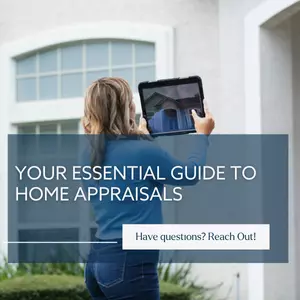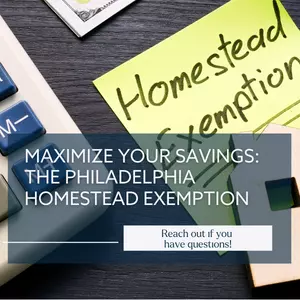How To Appeal Your Philadelphia Property Taxes
4 MINUTE READ
If you’ve received your Philadelphia property tax assessment and don’t agree with it, you may have recourse. The city has a step by step appeals process that you can follow to get your property tax assessment reconsidered. It can be a bit confusing but we’ve tried to distill it into something that’s easy to understand.
The following article is not legal or tax advice and may not be up to date or apply to your unique situation. Consult with an attorney or qualified CPA for details about your unique property tax situation.
The First Step is a “First Level Review”
-
First, request a first level review (FLR) using the FLR form included in the assessment documents sent to you each year. You can get a replacement of this form if you misplaced it by calling 215-686-9200.
-
With your FLR form, include any documentation or information that you believe helps your case in adjusting your property’s assessment. This includes photos, recent appraisals, and other documentation justifying why you think the assessment is incorrect
-
Based on the FLR form and the submitted information, an Evaluator may decrease, increase (!), or make no change to your property’s assessed value.
If you are not satisfied with the results of your FLR or choose to skip this step all together, you can file a formal appeal with the Board of Revision of Taxes (BRT) by the first Monday of October of each year (October 7th for 2019).
Appeals should make the case for one or more of the following:
-
The appraisal for your property is too high or too low
-
The appraisal isn’t similar to similar properties in your area
-
The characteristics of your property used in the appraisal are substantially incorrect
I’m not satisfied with the FLR and I need to appeal. How do I do it?
We’ve put together a comprehensive guide so you can make a strong appeal. Make sure to review the BRT appeals page for additional information.
First, do you qualify to make the appeal? Determine your status as an “aggrieved party”. Only aggrieved parties can file Appeal Applications. Aggrieved parties are:
-
The owner of record
-
An equitable owner (not necessarily on the record)
-
A tenant who pays all or part of the real estate taxes or the use and occupancy taxes
-
A mortgagee in possession of the property
BRT also specified who is an “authorized” applicant. An authorized applicant is either the aggrieved party, your legal counsel, or an authorized representative. If your lawyer or another representative is filing the appeal, a copy of the power of attorney form or a letter of representation should be included with the appeal application.
-
Make Your Appeal: File your appeal by the first Monday of October of that year (October 7th for 2019) with the BRT by mail or in person. Additional information and exceptions are detailed on the appeals page of the OPA website.
-
Get Your Hearing Date And Time: The BRT will send a notice of the date, time, and location of your appeal hearing once the application has been processed. If you choose not to have a hearing on your application, they will use the documentation in your application.
-
Call In The Experts: You can line up “Expert Witnesses” if you think it would help your case. These are people who have specialized knowledge of something concerning your case, like a private home appraiser or real estate developer with knowledge of the value of your property. At least 20 days before your hearing, you have to provide the BRT with a summary of the expert’s qualifications, proof of their compliance with the Pennsylvania Real Estate Licensing Act, and twelve copies of a full narrative appraisal report prepared with the Uniform Standards of Professional Appraisal Practices (USPAP) containing the findings and conclusions of their testimony. Consult with a lawyer when determining the need for and requirements for including an expert witness in your appeal.
-
Present Your Case: At your hearing, you will present all of the evidence that you think makes the case for a revision of your property’s proposed valuation. Any expert witnesses will also testify. The Board might ask for additional information before making a decision. Make sure that you review all of the rules and regulations surrounding the oral hearing procedure when preparing your case.
Documents You Should Include in the Application or Produce at the Hearing:
-
Photographs of the front, side, rear, and street views of the property
-
Any appraisal documentation contradicting the City’s appraisal
-
Comparative values of similar properties around your property if they contradict the City’s appraisal
-
Expert witness documentation detailed on the BRT appeals page
-
Anything else you or your lawyer think will help your case
We highly recommend retaining legal counsel if you choose to undergo the formal appeals process. A skilled and trustworthy real estate lawyer will help you make the strongest case possible in accordance with all of the associated rules and regulations. However, lawyers can be costly and you are certainly able to appeal your property’s assessment without one.
Related Article | 5 Things Every Philadelphia Homeowner Needs To Know About Property Taxes
Related Article | Everything You Need To Know About The Philadelphia Tax Abatement
Are you looking to buy or sell a home in Philadelphia?
We’d love to help
Categories
Recent Posts










GET MORE INFORMATION


